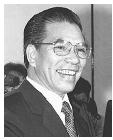VIETNAM
Nong Duc Manh
General Secretary

(pronounced "nahng duhk mahn")
"We are determined to correct the mistakes [of the past] and fight to stop the negativity, bureaucracy, corruption and wastefulness—and to build the party clean and strong."
The Socialist Republic of Vietnam extends 1,650 km (1,025 mi) along the eastern part of the Indochina peninsula. It is bordered by China to the north, Laos and Cambodia to the west, and the South China Sea and the Gulf of Tonkin to the east. Its area is 329,560 sq km (127,243 sq mi). The two largest cities are Ho Chi Minh City and Hanoi.
Vietnam's rapidly growing population was estimated at 81,098,000 in July 2002, with a density of over 238 people per sq km (616 people per sq mi.) Its ethnically diverse population consists of more than 60 groups, including many highland tribes, Chinese, Khmer, and other non-Vietnamese people. Although religion is discouraged by the state, many Vietnamese are nominally Buddhist, Taoist, or Roman Catholic. The official language is Vietnamese, but English, French, and Chinese are also spoken. The literacy rate is 94% and the life expectancy for males and females is 67 and 72 years, respectively.
The Vietnamese economy is largely agricultural. Traditionally, northern Vietnam has been more industrialized. Since the recent opening of the economy, commerce in Ho Chi Minh City is flourishing. Vietnam is becoming self-sufficient in food production. Its per capita gross domestic product (GDP) was US $1,950 in 2000. Major trading partners are China, Japan, the United States, the United Kingdom, Germany, and other Pacific Rim countries. Exports include crude oil, fish, rice, coffee, clothing, and shoes. As of 2002, Vietnam suffered from large trade deficits. The national currency is the dong.
ADDRESS
Governmental Offices
1 Hoang Hoa Tham St., Hanoi, Vietnam
Comment about this article, ask questions, or add new information about this topic: